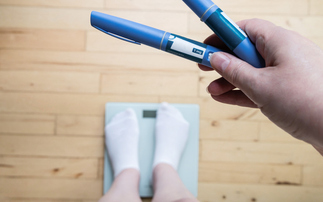COVER investigates the trend for insurers to launch virtual private GP access and asks whether this could be the game changer that PMI has been looking for.
One of the biggest issues in recent years has been people no longer having swift access to their NHS GP. To address some of these challenges, a number of private medical insurers have recently launched virtual GP services. So will this be the answer that PMI has been looking for to increase its profile and gaps in NHS provision?
This is a big task, given the burden on the NHS. Research conducted by the Royal College of Surgeons last September described patient's battles to see their GPs as "a national crisis". The research predicted that patients will have to wait a week or longer to see their GP or practice nurse on 60 million occasions over the next year.
A&E under pressure
Pressures on A&E services have also soared: analysis released in January by the Public Accounts Committee for the Labour Party revealed almost one million patients a year are seeking care at an A&E unit because they cannot get a GP appointment.
Total NHS spending committed to GPs, walk-in centres, optometrists and dentists fell from 29% to 23% between 2003-2004 and 2012-2013.
How virtual health works
Amid such challenges to primary care, insurers are well placed, but what do these newly rolled out virtual services entail?
VitalityHealth's service allows policyholders to have Skype sessions with GPs, who can make a diagnosis following a conversation with the policyholder. Health Shield's new virtual service also allows members to book a webcam consultation from 8.30am-6.30pm, Monday to Friday.
Similarly, Aviva's corporate customers will now have access to video or phone consultations with GPs following the insurer's partnership with Babylon, and the ability to receive medical information via text. Such services also allow pharmacies to deliver prescriptions direct to the policyholder.
Aviva's Babylon tie-up also provides instant referrals to specialists and diagnostic tests as and when required, through a network of specialists across the UK. Customers can also access an app with a symptom checker and a health monitor.
Meanwhile, Simplyhealth's mywellbeing hub, launched in January, also allows customers to book an appointment to speak with a GP either via telephone or via telephone and webcam. Policyholders will also be able to use health assessment tools.
Howard Hughes, head of marketing communications at Simplyhealth, said: "Healthcare is no longer confined to a GP surgery. With mywellbeing, customers have access to fully qualified GPs at a time that suits them. In addition, customers will find tips on healthy lifestyles, how to combat stress, and even access to a 24/7 counselling helpline."
In the past, many cash plans and private medical contracts gave patients access to GP telephone helplines or medical information helplines as opposed to webcam appointments or electronic prescriptions. It is also worth noting that the concept of Skype appointments is not unique to these insurers, with NHS GPs also introducing Skype technology to their patients.
The benefits
So what do brokers think of the recent launches? Claire Ginnelly, head of healthcare at Premier Choice Group, said: "Historically the claims process in PMI has been to see your GP first and your GP refers you on. Now there's that delay on seeing your GP in pockets of the country, some people buy PMI for speed of treatment, but that is delayed by GPs in many circumstances.
"Anything that comes on board to address that is to be welcomed. Innovation in the market is to be welcomed, because as an industry, and in the PMI market in particular, we are guilty of saying there isn't innovation in the market and when it does come along, we complain that it is different."
Stuart Scullion, managing director of The Private Health Partnership, agreed: "I think these are for corporate clients, instead of clients generally. I think this is a good move in principal. I have the situation with my GP where you have to ring first thing that morning and you have to be on the phone to your GP for an hour trying to get an appointment. When you eventually get through you are told there are no appointments left for that day and you're asked if it's an emergency.
"Our response to that was we [The Private Health Partnership] bought a private GP service. It's an online service and we have given it free of charge to all of our individual, consumer customers. It is a virtual service. We wrote to our consumer clients and said we know the problems you have been facing and struggle to get access to an NHS GP.
The limitations
Scullion added: "Many of our consumer clients are over the age of 50 and 65. The days of you being seen by the person you consider to be your GP don't exist anymore. There is password coded system and PHP clients have a card they can keep in their wallet and use that to access a GP. If it's possible, they will either put them through there and then or put them through to a GP within 40 minutes to an hour. They will discuss the symptoms and what they think you should do."
Scullion added that such virtual services are particularly effective for clients who have long commutes to work away from their local area. He also said they free up NHS GP time for people with symptoms, because many people who needed repeat prescriptions for long-term or chronic conditions usually needed to visit the GP surgery in the past for sign-off, despite their circumstances not changing.
While virtual GP services have been broadly welcomed, there are a few misgivings around certain elements of the service. One issue is whether customers will favour a Skype or online diagnosis instead of face-to-face interaction.
Scullion said: "There are some services where say you had something like a rash on your arm. You can take a picture of your arm for example, upload it online and the doctor can see your rash. That's fantastic, but what if it's something a bit more personal? There are limitations to the services."
Meanwhile, Ginnelly is unclear about how such services will work alongside policyholder's own NHS GP. She said: "It's going to be interesting to see how it works alongside policyholders' own GPs. Suddenly, NHS GPs won't have access to that information because you will bypass them for treatment via the private GP. That's where the question mark is: What's the impact? Will NHS GPs be cut out of the equation?"
Ginnelly questions whether there will be implications for underwriting if a policyholder switched to a new insurer, and that insurer wrote to the NHS GP. "Your medical records could become diluted. I'm not sure about this, although the insurers who launch this might have already addressed it. I'm not saying the services shouldn't be welcomed, as it should speed up services but could change the processes PMI has been built upon. Will there be an actuarial impact?"
However, Health Shield has addressed this. Peter McAndrew, sales director at Health Shield, said: "When a patient has any kind of consultation with our GPs they build up a case history. If a policyholder wants those records transferred to his own GP, it can be arranged with a phone call. Usually, our GPs will ask whether that patient wants their medical records sent onto their own NHS GP, unless of course it is something minor."
Filling the PMI gap
Laing and Buisson figures have shown that less than 11% of the UK population has PMI: the majority of people who have a policy accessed this through their employer.
Scullion said: "However, there is something significant happening, with a changing emphasis to treating illness to managing wellness. There will be a requirement for employers to monitor wellness in the workplace. This will not be instant, but if we were having that conversation in three years' time, we will see a wellness strategy at the front end, things in the workplace to help people monitor wellness, and they will be able to see the key drivers for their state of health. This will dovetail with PMI."
Scullion points to figures released by Bupa last year. If there was a 15% price reduction in PMI premiums, there could be a £2bn increase in annual spending on PMI. He added: "There is potential. If people are healthier than they have been, it could change the claims pattern in PMI. It could be offered more cheaply and appeal to more people. There is a cohesive pattern, but I don't think a private, virtual GP service in itself will make people want to buy PMI, because they get a free GP service. How the PMI industry conveys key messages around wellness [will be crucial]."










